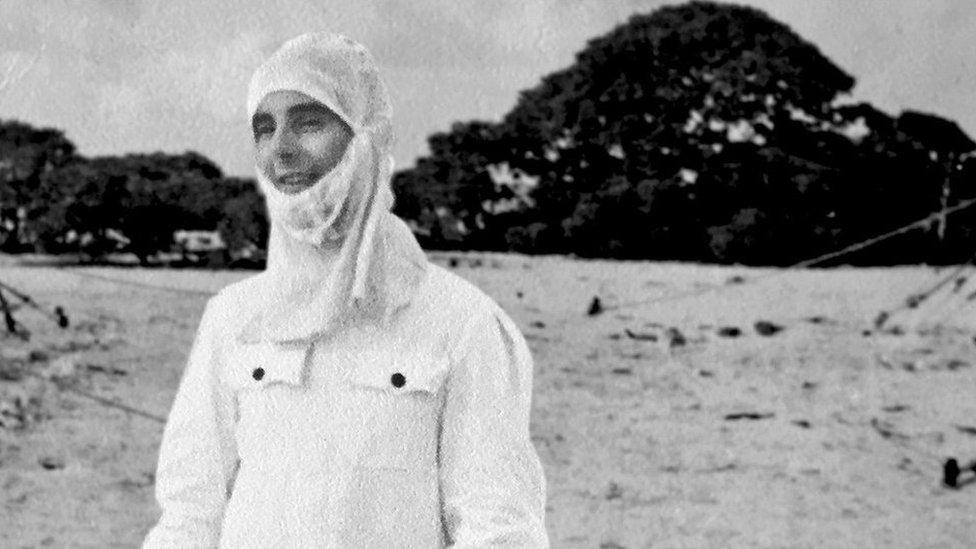Nuclear test veterans 'need Hillsborough-level apology'
- Published
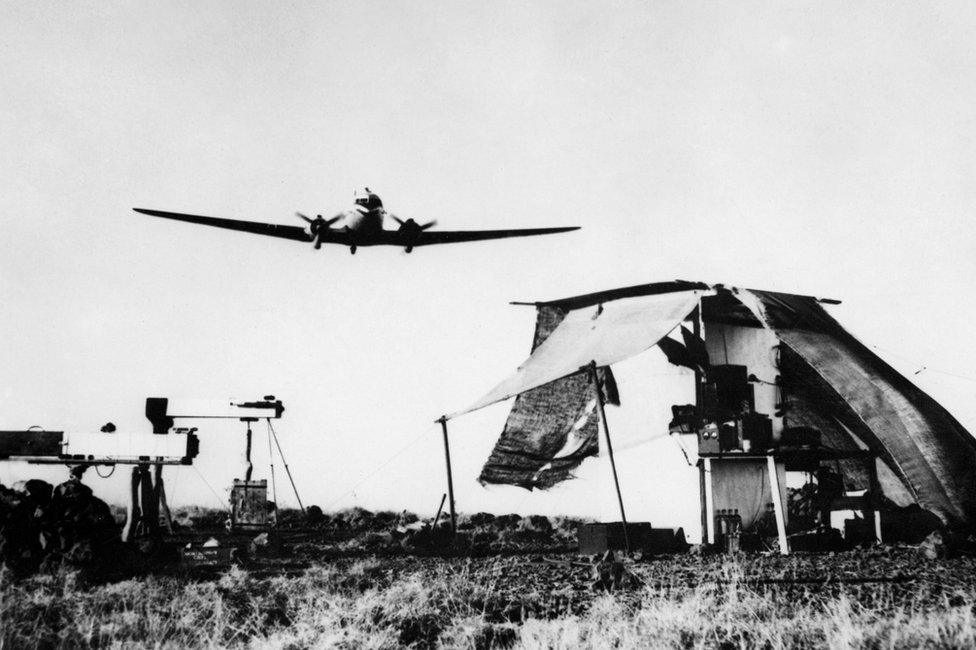
A series of nuclear weapons tests took place in the 50s - the first was Operation Hurricane on 3 October 1952
The daughter of a man who witnessed a British nuclear test in the 1950s has demanded a "Hillsborough-level" apology 70 years after the first detonation.
Elin Doyle said her father Mike Doyle and many others had not seen justice.
Her father suffered ill-health, as did her sibling, which they blamed on the tests, she said. The government said the veterans helped keep Britain safe.
The first test, Operation Hurricane, took place on 3 October 1952. Veterans will join a service in Kent on Tuesday.
Mr Doyle, a technician and civil servant, was present at a later test - Operation Grapple in 1957 - for his national service.
His daughter said he witnessed that explosion with his back to the blast, his hands over his eyes, and without protective clothing.
She said he described an intense heat as his back grew hot, and how he believed the men who were present were "going to burn".
Ms Doyle said her father developed a rare condition, cardiac sarcoidosis, had a heart attack at the age of 48, and lived with heart disease until he died aged 67.
Her sibling was born with a birth defect that her parents immediately attributed to the tests.
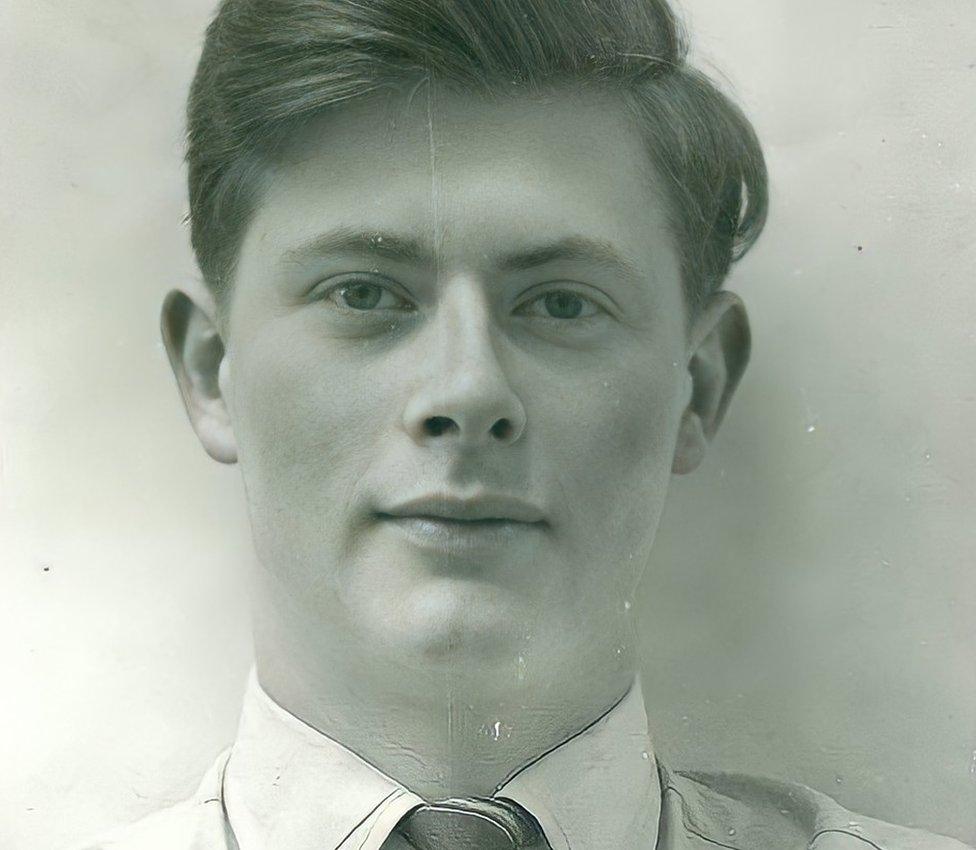
Mike Doyle was a technician present at Grapple for his national service
Ms Doyle said her father did not question the tests, and many people at the time saw taking part as being patriotic. But potential symptoms of a condition called moral injury appeared later.
Combat Stress, external defines moral injury as the psychological distress resulting from a person having to follow orders and take actions that clash with their own moral or ethical code.
"He'd go out of the house and be able to start a row over some perceived lack of service - he'd go on the warpath," Ms Doyle said.
"He definitely felt by the time he died that he had been badly served, let down in general.
"I think he had decided there was enough suspicion and enough evidence for him to believe that actually the people who were sent to the tests had been put there as guinea pigs."
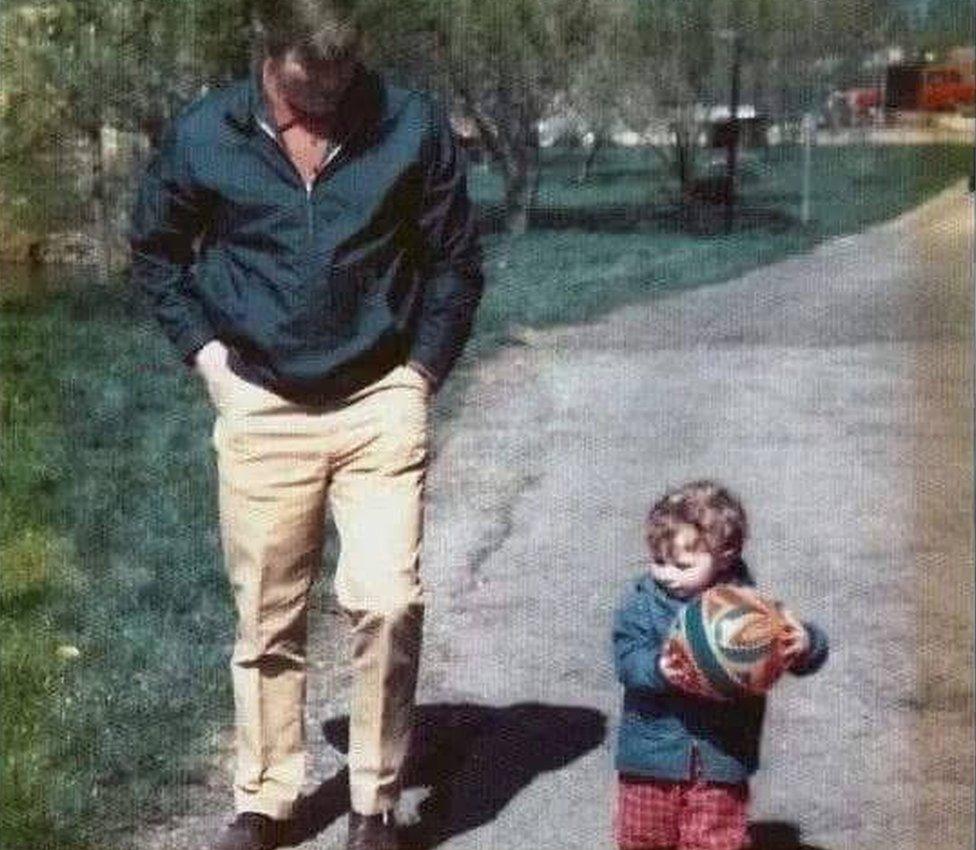
Elin Doyle, seen here with her father, said he had fought for compensation and would still want an apology
London actor Ms Doyle, whose play Guinea Pigs, external, based on her father's experience, is being performed this week, said for many years no government on either side would address the problem.
"After dad died, he didn't get justice," she said. "Thousands and thousands never saw justice and then they died.
"He wanted an apology - like that given for the Hillsborough victims - and proper care for the families left behind."
Mr Doyle went on to work for the British Nuclear Test Veterans Association (BNTVA), fighting for veterans to be compensated
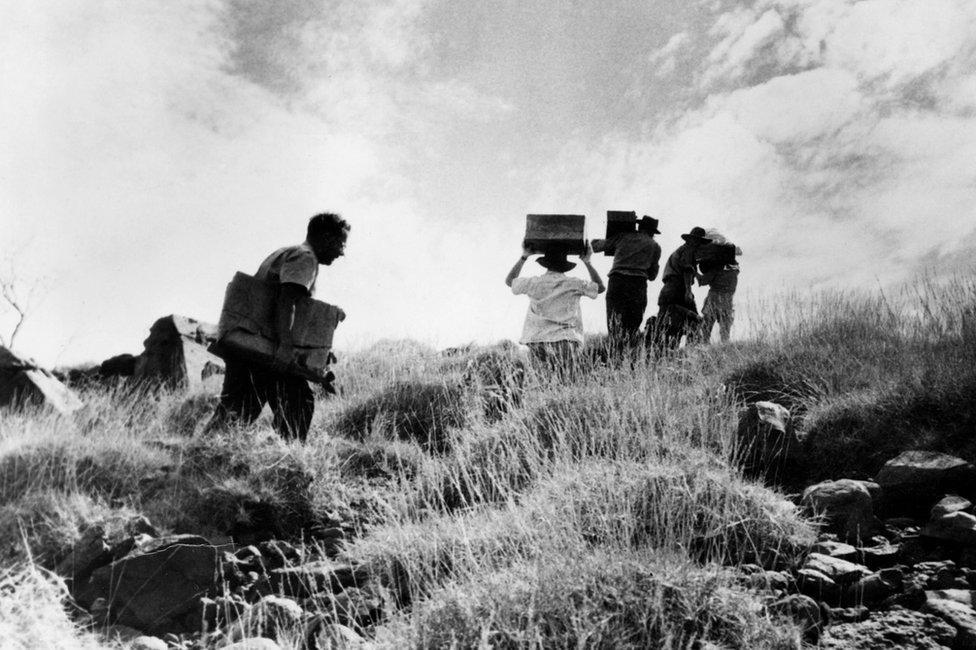
Many veterans were proud of their work and would do it again, the BNTVA said
Ceri McDade, chief executive officer of the BNTVA, whose own father was a nuclear veteran and died from cancer, agreed an apology from the prime minister was needed.
She remembers her father telling her "the government did this to me".
Ms McDade said the average age of the veterans was now 86, and many of them had terminal illnesses and they needed to feel valued by the government, plus end-of-life care.
"If that means they have a real, deep-seated apology, that is a major step forward," she said.
In 2012, the government apologised for the "injustice" of Hillsborough.
'Sacrifice' thanked
The Cabinet Office was contacted by the BBC to comment on the nuclear veterans' call for an apology and end-of-life care provision but has not commented on either issue.
It has released a statement which said it would host a commemorative event to recognise the contribution of the veterans.
It said funding was being provided to set up a £250,000 oral history project and a separate £200,000 fund "to support activities for nuclear test veterans and educate the public on the United Kingdom's nuclear deterrence efforts".
James Heappey, Minister for Armed Forces and Veterans, said: "Veterans who supported the creation of our nuclear deterrent have played a crucial role in keeping Britain and our Nato allies safe and secure.
"Their sacrifice contributed to achieving the ultimate guarantee of UK sovereignty and they forever have this nation's gratitude."
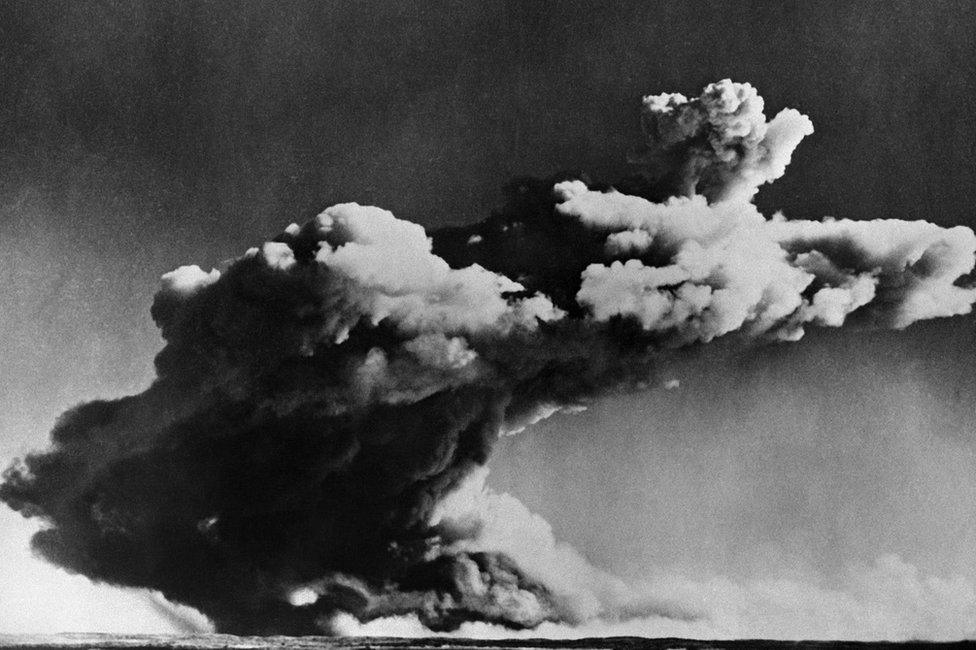
Witnesses have described sitting with their back to the blast but feeling the heat and the force and being able to see the light through their hands
The Ministry of Defence has previously said there was "no valid evidence" linking the nuclear tests to ill health.
The BNTVA this week holds its conference in Kent, which will hear latest research on the issue.
The meeting will include a service to mark the 70th anniversary of Operation Hurricane, which took place off Western Australia.
Many British servicemen involved with the tests have strong links with Kent, according to Ms McDade.
HMS Plym set sail from Chatham to Sheerness, where the bomb was loaded, on her way to the Monte Bello Islands for Operation Hurricane.
And HMS Cavalier, which is at Chatham's Historic Dockyard, was present at Operation Grapple, which took place on Christmas Island.

Follow BBC South East on Facebook, external, on Twitter, external, and on Instagram, external. Send your story ideas to southeasttoday@bbc.co.uk.
Related topics
- Published6 September 2022
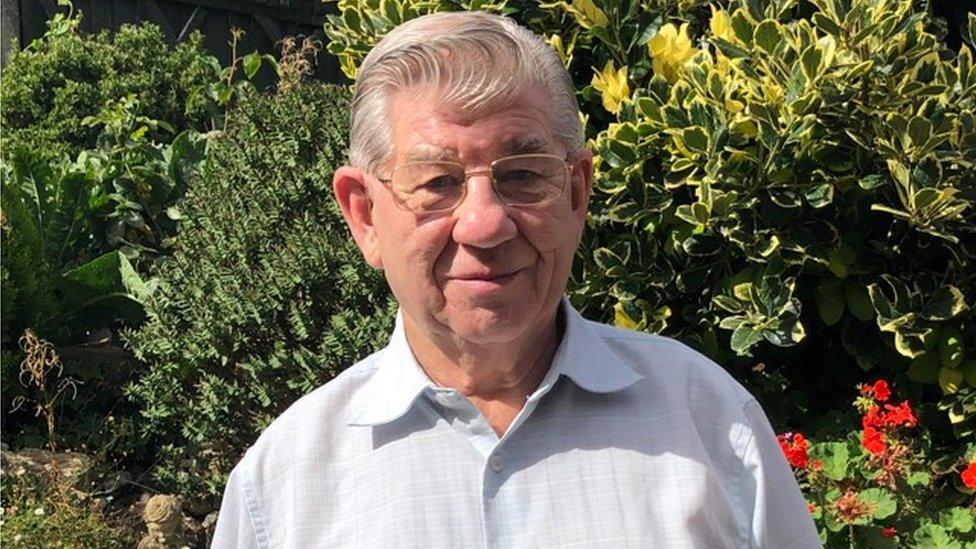
- Published30 June 2022
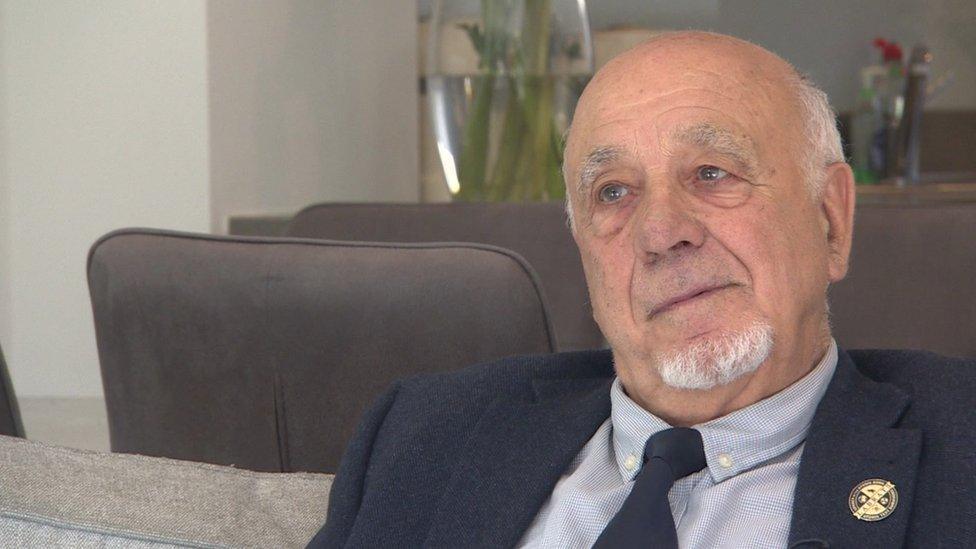
- Published22 June 2021
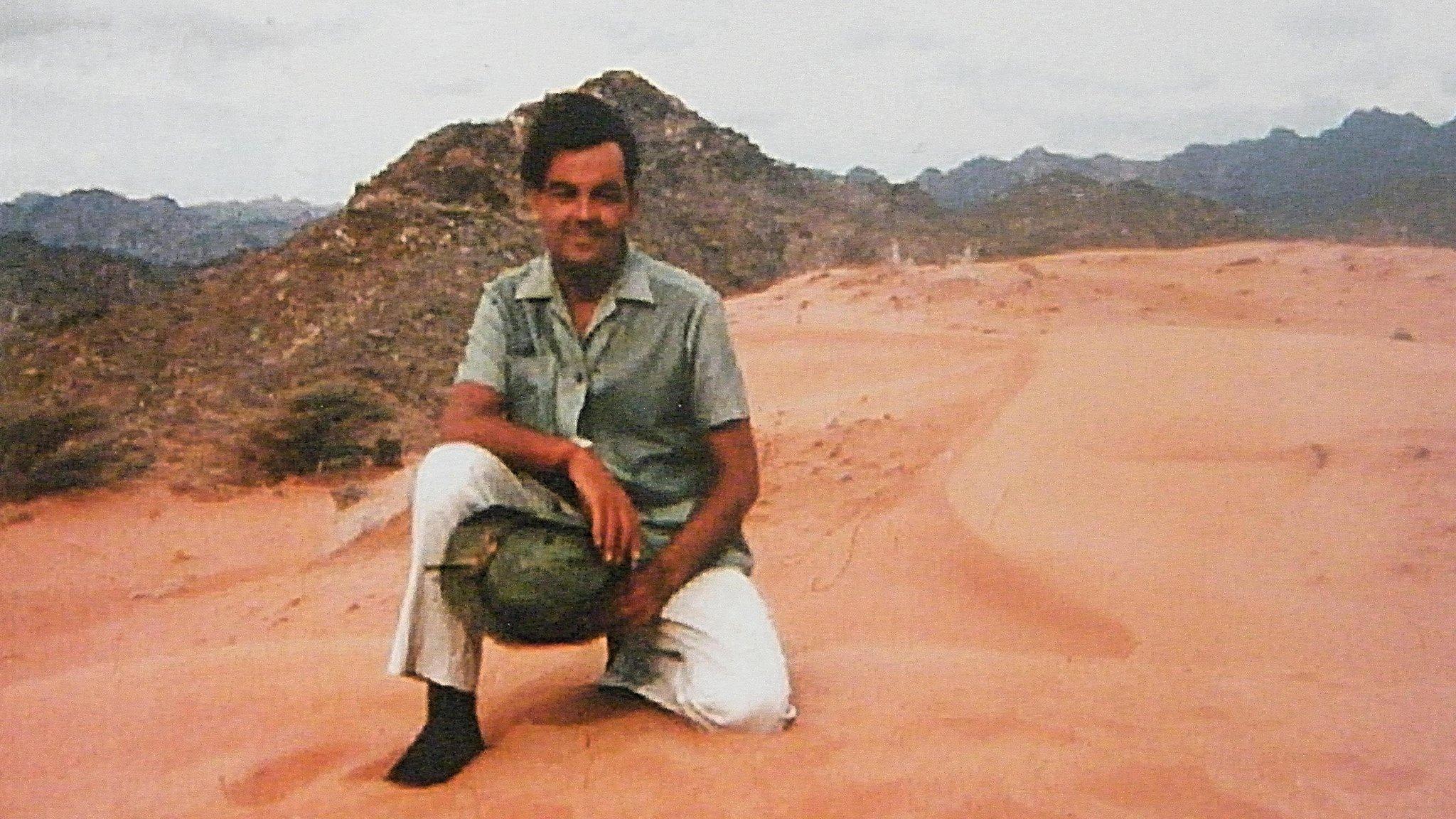
- Published30 May 2021
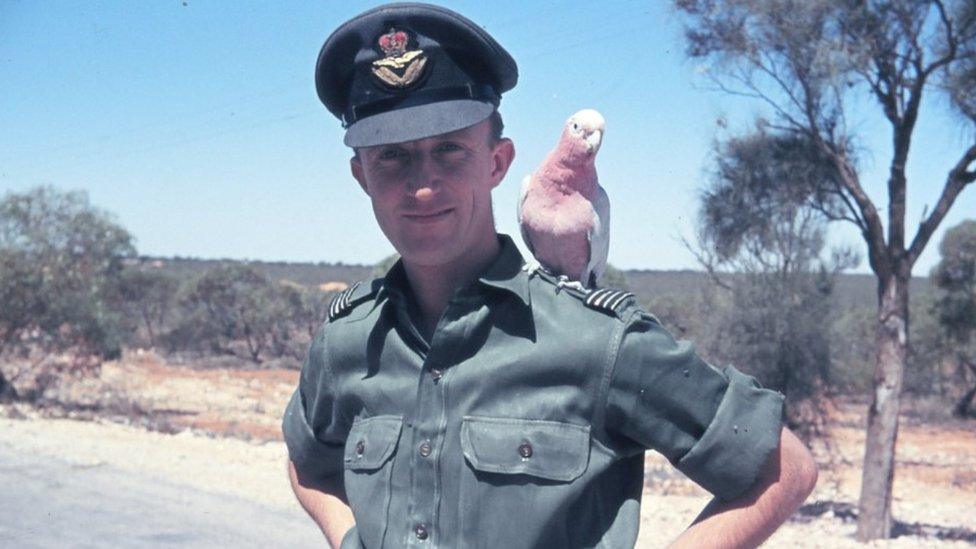
- Published18 June 2018
